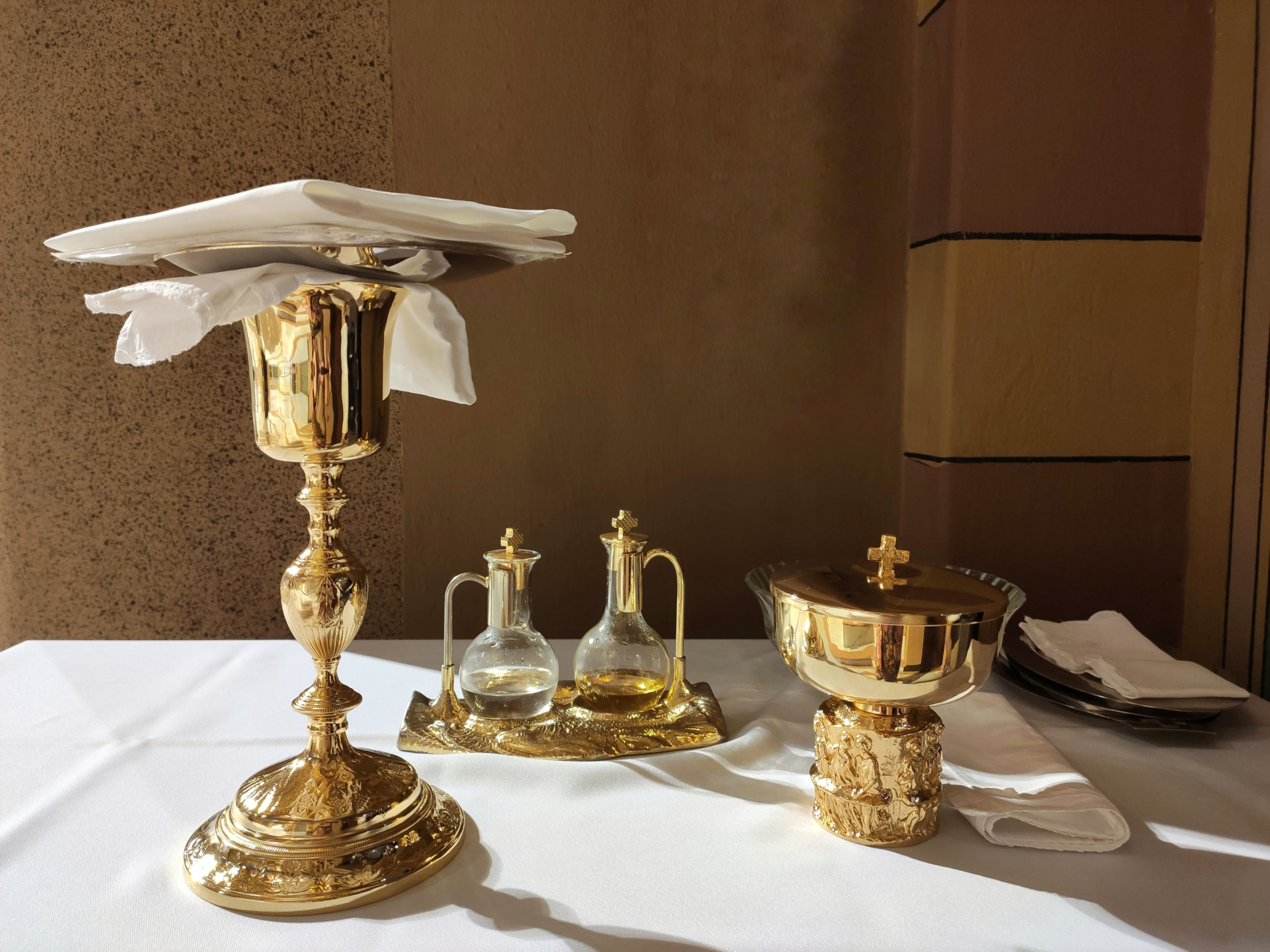“To celebrate the liturgy without preparation is a violation of God’s holy presence and a crime against those who gather to celebrate that presence.”
-(Fr. Austin Fleming p. 32 Preparing for Liturgy: A Theology and Spirituality)
For liturgy to be engaging and to call forth full, conscious and active participation from the assembly, careful preparation and organization is necessary. In the light of the participatory quality of the liturgy, everyone attending trusts that those involved in the leadership roles are preparing effectively and thoroughly. This trust makes it possible for the community to act as one body and pray themselves together into the vision of God’s Kingdom.
In every parish, this careful preparation begins with the sacristan, the person or persons who have responsibility for the reverent care of the liturgical books, vessels, vestments, linens and all other objects used in the community’s ritual prayer. A well-organized sacristy is the beginning of a well-organized liturgy.
In some parishes, the sacristan is one individual with a great deal of responsibility, taking care of the details for all Sunday Masses, and weekday Masses. In other parishes, there might be a different trained sacristan for each Sunday Mass, and one for the daily Masses. Whichever the case, the sacristy and all liturgical properties need to be prepared effectively so that Mass can be celebrated with a holy unity.
New Archdiocesan Guidelines for Sacristans are forthcoming.
For further information on this program, please contact the Office for Worship at 213-637-7262.


